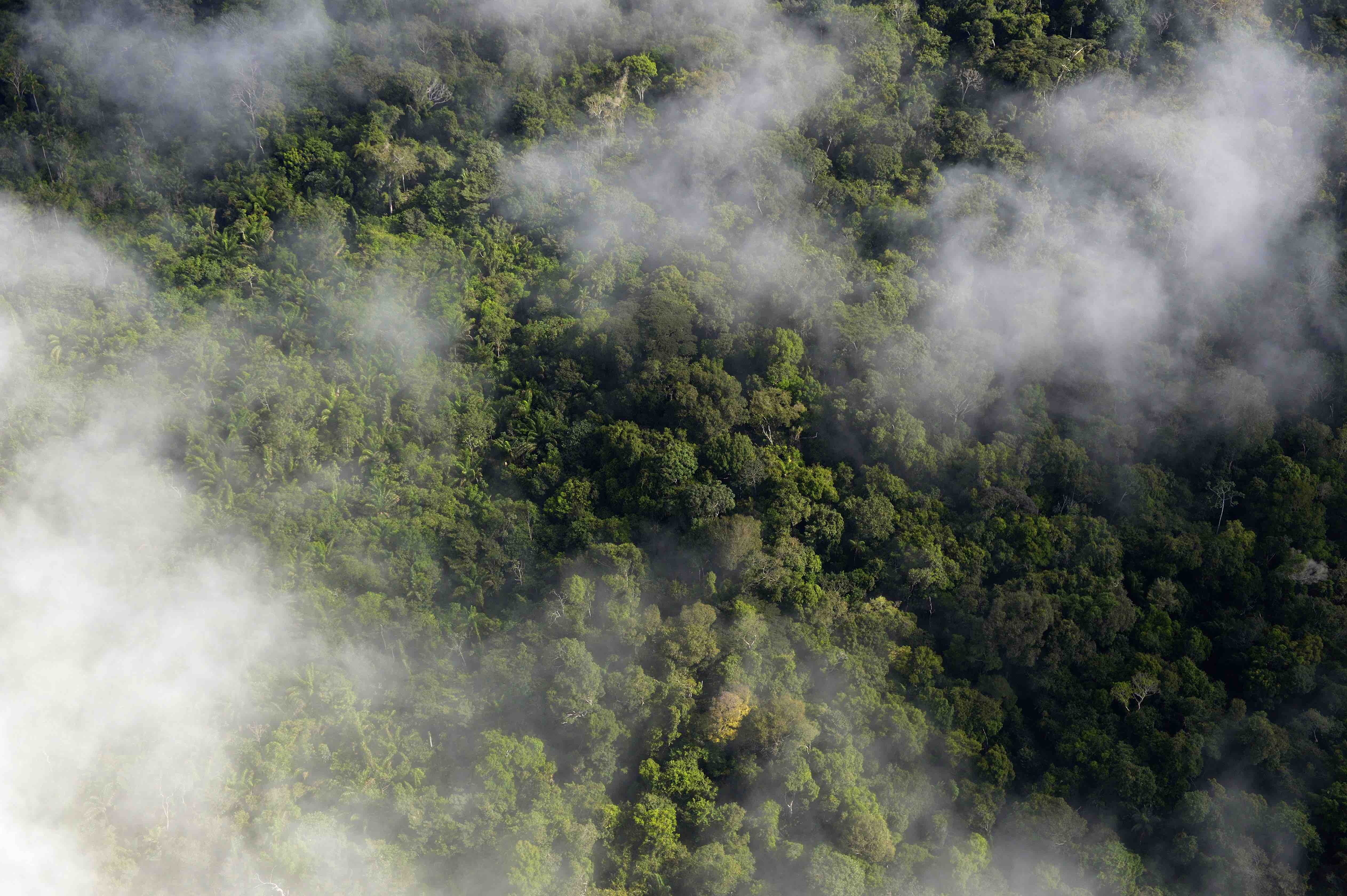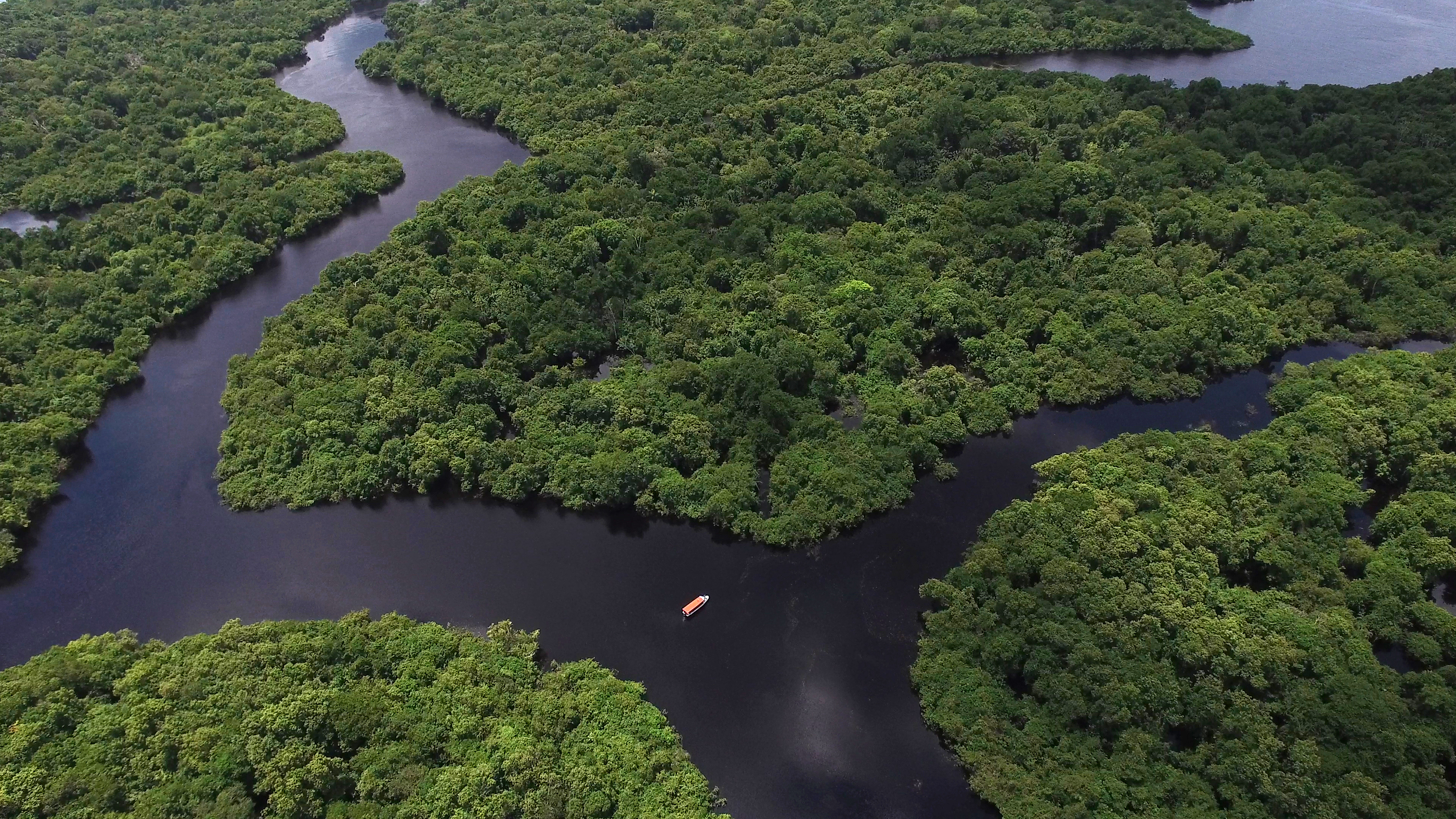The Amazon forest has been burning for weeks. The Brazilian states of Amazônia, Mato Grosso and Rondônia are the most affected, with thousands of fires spreading out of control, prompting millions of people to demand a solution on social media.
The summer in the southern hemisphere brings dry weather, but the lack of rainfall does not seem to be the main culprit for the current situation in the Amazon, as tropical forest ecologist Erika Berenguer explains.
“The dry season in the Amazon has always brought fires,” she tells me. “What’s different this year is the scale of the problem. It is the increase in deforestation allied to the innumerable fires and the increase in carbon monoxide emissions.”
Vanessa Costa, a forestry engineer, adds that “rural producers choose this time of year to clean up the area for the next planting season and to renew the pastures. Generally, they use the fires for this purpose”.
Fires in the Amazon rainforest do not occur in a natural way; someone has to start a fire. That’s exactly what happened on the “Day of Fire.” Between August 10 and 11, farmers in the state of Pará, organized through WhatsApp, reportedly decided to set the forest on fire as a way to show support for far-right president Jair Bolsonaro.

Speeches and actions by the Bolsonaro government – in conjunction with a legacy of decades of ostensible settlement, deforestation, the advance of the agricultural and ranching frontier and destruction of the way of life of Indigenous tribes – have contributed to the current situation. More than coincidence, it is purposeful.
As people try to find ways to make a difference, Bolsonaro doesn’t seem particularly concerned about slowing down or stopping the fire. The Brazilian government is turning down the $22 million pledged at a Group of 7 summit meeting because President Emmanuel Macron of France made insults to his person. “To talk or accept anything from France, even with their very best intentions, he will have to withdraw his words, and then we can talk,” Bolsonaro says, according to The New York Times. “First he withdraws them, then he makes the offer, and then I’ll answer.”
But it goes further back than that. Leaked documents – via OpenDemocracy – show that the Bolsonaro government not only intends to isolate the vulnerable communities living in the Amazon region, but it also plans to implement predatory projects, such as the creation of new roads that traverse the forest, the construction of more hydroelectric plants and the expansion of the region’s population.
The opening of new deforestation routes directly affects the spread of fire and the 70% increase of fires in the region compared to last year is proof. According to Instituto de Pesquisa Ambiental da Amazônia (IPAM), most fires are the result of human action and there have already been more than 72,000 fires in Brazil this year.
Additionally, the Instituto Brasileiro do Meio Ambiente e dos Recursos Naturais Renováveis (Ibama), the country’s environmental inspectional agency, has seen its budget cut by 24%. In May, the government halved the budget of Prevfogo, which combats forest fires, and the inspection budget for the Instituto Chico Mendes de Conservação da Biodiversidade (ICMBio) by 20%. In addition to cuts made by previous governments – particularly those of Michel Temer and Dilma Rousseff – the situation for environmental enforcement agencies is precarious.
“The president sees environmental protection as an obstacle to the country’s development.”
“Since President Jair Bolsonaro took office, the government he showed a very critical attitude towards Ibama,” Costa explains. “The president sees environmental protection as an obstacle to the country’s development, wanting to loosen environmental laws, plastering the performance of environmental agencies and undeserving the research institutes in the country.”
But even worse than the cuts is the speech of government officials, especially the president and Minister of the Environment Ricardo Salles, who have encouraged the reported criminal action by farmers, illegal miners and ranchers.
With Salles in office, “Ibama has barely carried out any inspections or issued a notice of infraction,” Costa says. “To make matters worse, the government recently criticized INPE [Instituto Nacional de Pesquisas Espaciais], which is one of the most serious research institutions in the country, because it released data showing that deforestation had increased in the current government.”

As a response, Bolsonaro fired Ricardo Galvão, INPE’s former director.
“With a government that does not invest in policies to protect the environment, many people feel free to deforest and set fire,” Costa adds.
In April, Bolsonaro created a regulatory body with the objective of forgiving environmental fines, which directly undermines Ibama’s ability to carry out its work. The agency was also prohibited from answering questions from the press and has been forced to inform in advance and publicly where it will carry out inspection operations, alerting potential offenders.
Countless statements given by Salles and Bolsonaro – including railing against the preservation of the Amazon and criticizing the “excess” of demarcated Indigenous lands and areas of environmental protection – have also invited farmers to deforest and advance on preservation areas and Indigenous territories. Recently, an Indigenous Wajãpi was murdered by illegal miners who have invaded the territory of the tribe in the Amazon state of Amapá. President Bolsonaro said he doubted the case.
It is somewhat ironic, as explains biologist André Aroeira, that “the Amazon Fund used to promote important activities of ‘economic dynamism’ and ‘capitalist initiatives’ in the Amazon. Both expressions are recurrent in the minister’s empty rhetoric as the Amazon crumbles under his administration.”
Bolsonaro also went as far as accusing NGOs of starting the fires in the Amazon region as a way to harm his government and he also said that Brazil will win the “information war.” His foreign minister, Ernesto Araújo, stated in a series of tweets that a left-wing global conspiracy was behind everything.
There are thousands of hectares of forest destroyed and the air in several Amazonian cities has 40 times more carbon monoxide than normal. Countless animals are dead or were forced to flee the forest, and at least two elderly people were found burned to death while trying to escape the fire.
Meanwhile, the city of São Paulo, about 1,491 miles away from Rondônia, saw the day become night at 3 p.m. on August 19. The images of complete darkness and black rain circulated the world. According to INPE researcher Antonio Nobre, there is no doubt that São Paulo was hit by a plume of smoke and soot from the Amazon fires; his opinion was corroborated by laboratory tests carried out by two universities.
France and Ireland threaten to give up the free trade agreement reached between the European Union and Mercosur, of which Brazil is a member. Bolsonaro and his supporters celebrated the agreement.
If, on the one hand, Bolsonaro has bet on an alliance with the global far-right and alignment with religious fundamentalists at the United Nations, it could lead to diplomatic isolation. On the other hand, the possible direct responsibility for the environmental catastrophe in the Amazon could push Brazil even further from the center of western diplomacy.







